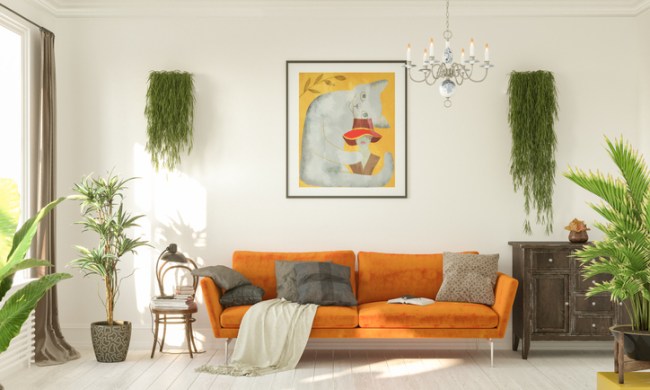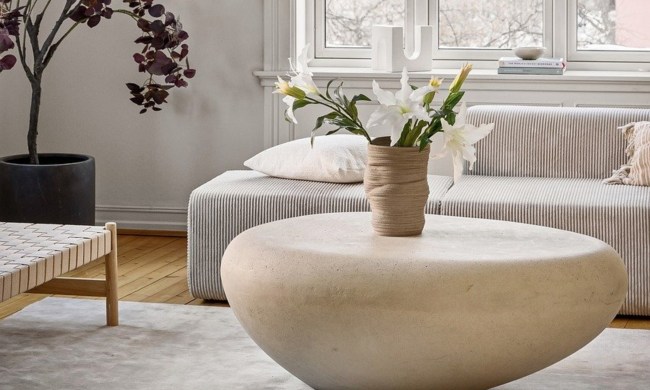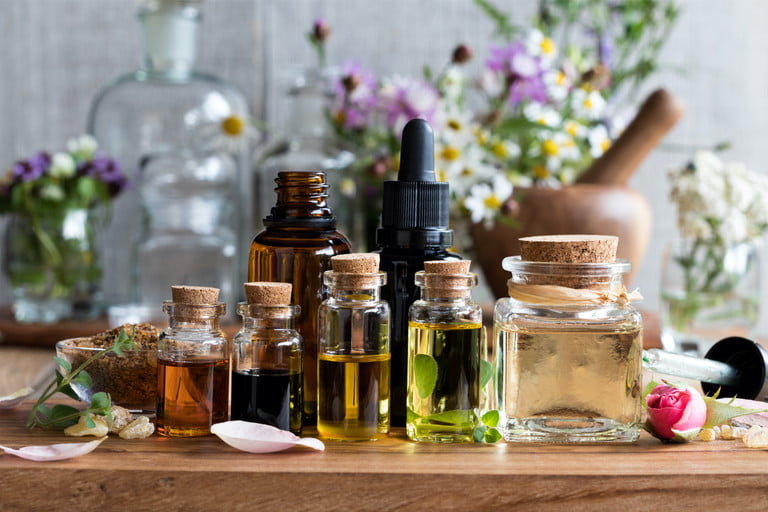
Smelling lilacs may instantly transport you to grandma’s bedroom window, where the breeze wafted in the fragrance of the lilac tree outside. Others may consider the whiff of baking apple pie such a warm and snug experience that they refrain from getting rid of cooking smells in their home.
Or perhaps the aroma of freshly cut grass on a Saturday morning refreshes and soothes their spirit. Whatever the scent, it may help bring more happiness into your home, according to science. Let’s explore the eighteen common smells that are said to make you happier at home.
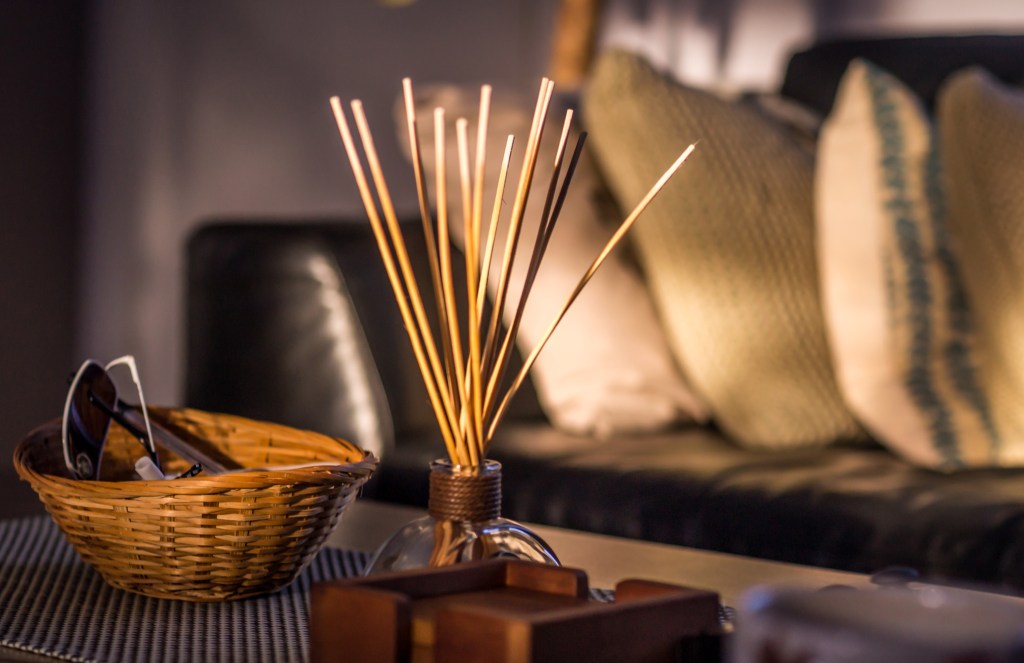
But why does this happen?
It turns out that neuroscience has discovered that scent has the strongest connection to memory and emotion than the rest of the senses. This is because, with scent, the sensory information collected goes straight to the brain’s olfactory bulb, which is directly linked to the regions responsible for memory and emotion.
Additionally, studies on fragrance conducted at the Mie University School of Medicine and the University of Vienna have shown that certain fragrances lessen the need for antidepressants in some patients, as well as decrease anxiety in a group of dental patients. This shows the likelihood that some scents have a “clinically quantifiable effect on mood,” as stated by Yale Scientific.
Based on this information, it seems ideal to have scents in our homes that bring up positive memories or get us into better moods. The good news is that many scents have long been linked to positive moods and health benefits, and we can try them out anytime we like!
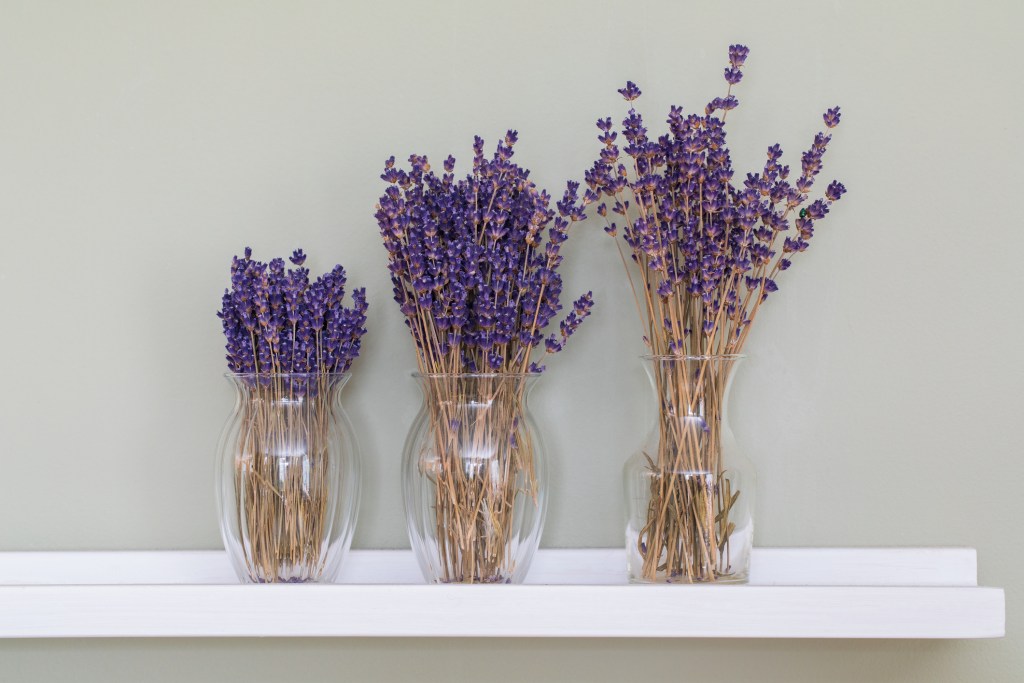
Lavender
Best known as a sleep aid, lavender can be sprinkled under the pillow or wrapped in a sachet to help alleviate stress and promote deeper, more peaceful slumber. Additionally, it has been proven to lower cortisol levels (the stress hormone), bring about calming, sedative effects, and improve cognitive performance.

Ylang ylang
This unique scent is derived from tropical flowers and is best used to relax and unwind. Pronounced ‘EE-lang EE-lang,’ it’s known to promote calmness, alleviate stress, and lower blood pressure. Some have found it effective for other uses, such as killing bacteria and head lice. It’s considered an aphrodisiac by many and is often associated with positive feminine energy.
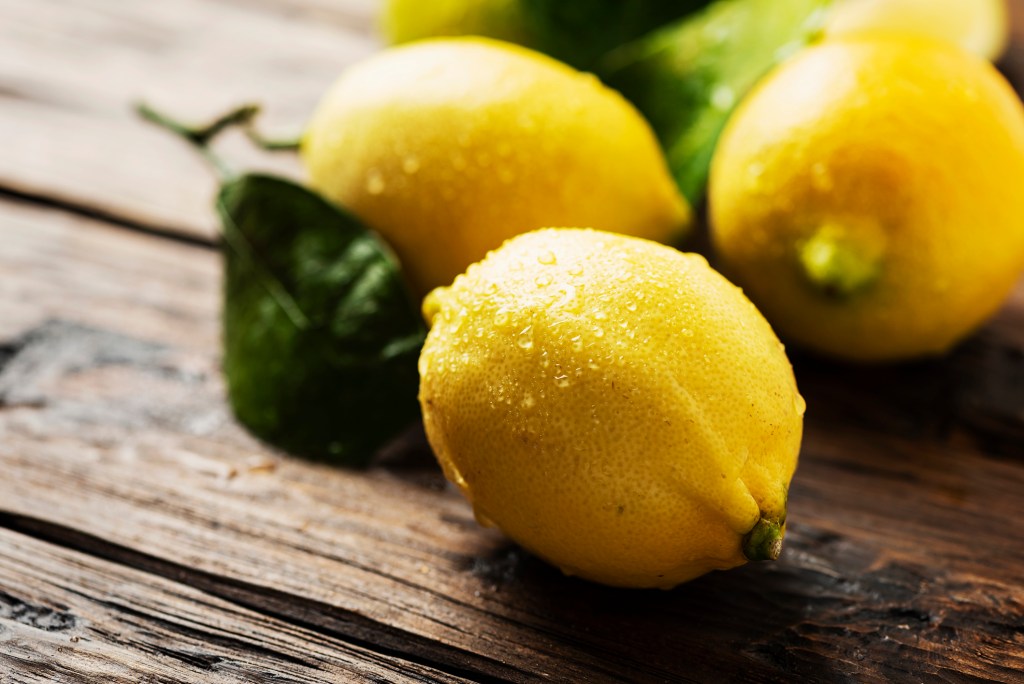
Lemon
The refreshing scent of lemon is associated with cleanliness and is considered an energizing mood-lifter. While all citrus fragrances are believed to improve mood, boost alertness, and alleviate anxiety and stress, lemon is the king of the fruit bowl. It’s also rumored to leave a good impression on others when the scent of lemon is worn.
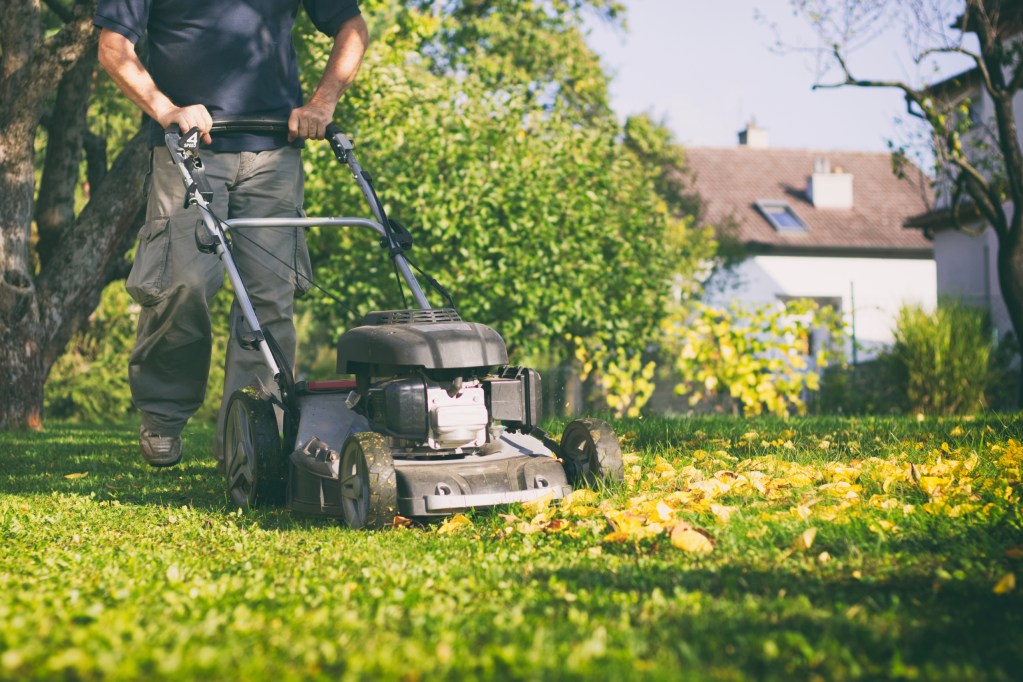
Fresh-cut grass
While mowing the lawn may not be your favorite chore, consider the following benefits next time you need to get started.
Apparently, research has proven not only that the release of certain chemicals from fresh-cut grass gives people feelings of joy and relaxation, but the scent may also prevent cognitive decline in aging. The bonus is that the fresh smell has prompted some to make fresh-cut, grass-scented essential oil, soap, candles, and more.

Pine
Pine is believed to help alleviate stress, improve concentration, and fight fatigue. Japanese culture has a custom called “forest bathing,” or slowly walking through the pine trees of a forest, which has been proven in a research study to lower depression and anxiety.
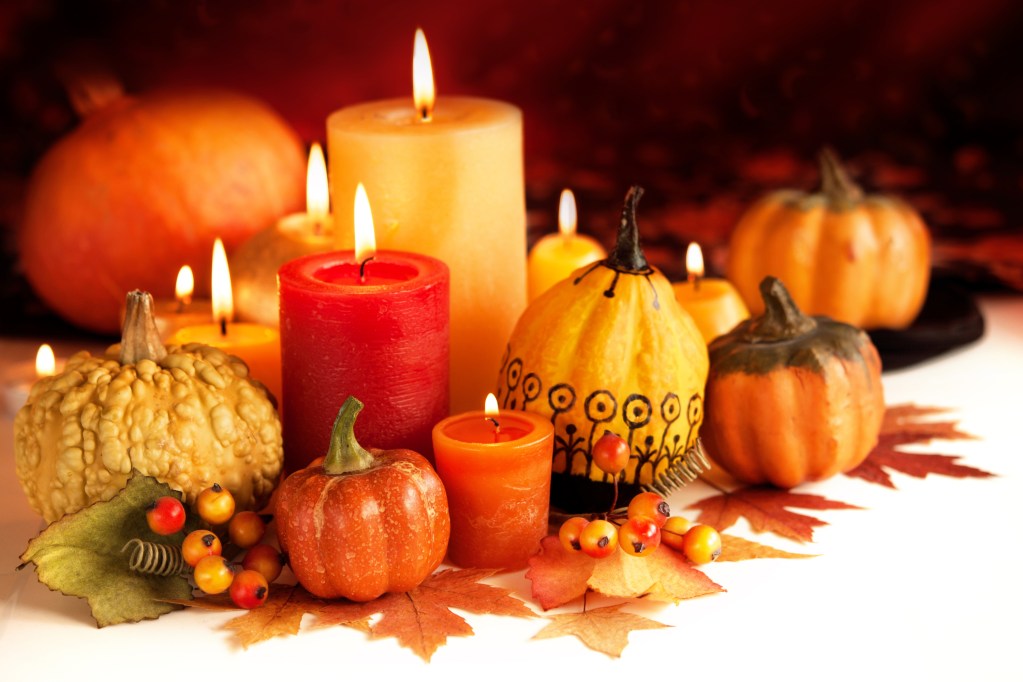
Pumpkin
It’s not just for pie anymore! Pumpkin may have entered a new phase as an aphrodisiac. According to a study by the Smell and Taste Treatment and Research Foundation, 40% of men who participated preferred a pumpkin scent, especially when combined with lavender. 20% had a similar effect when it was combined with doughnuts.
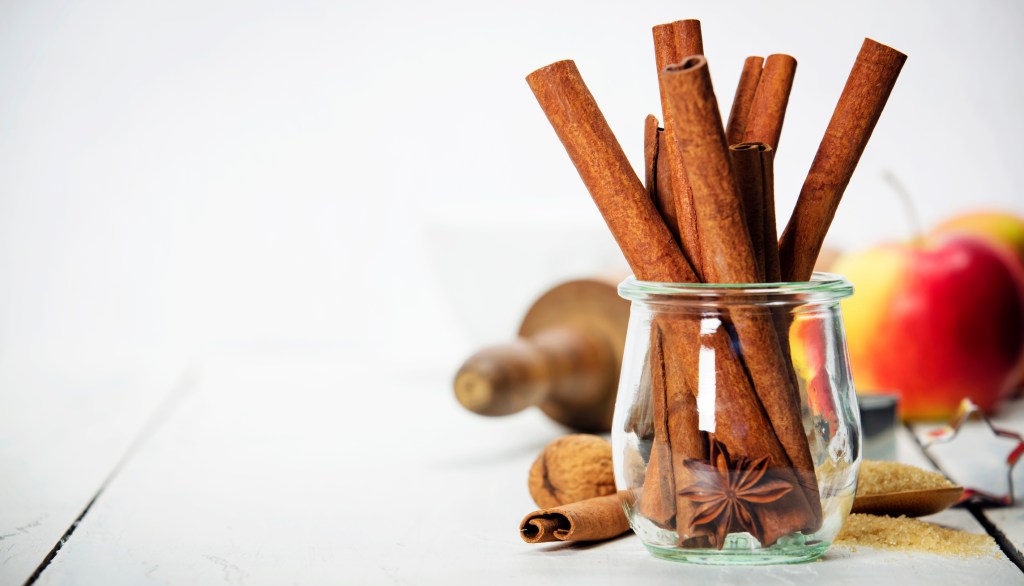
Cinnamon
Turns out, the warm scent of cinnamon does more than just spice up your oatmeal. The participants of a study conducted at Wheeling Jesuit University who smelled cinnamon were found to improve cognitive functioning in areas of attention span, working memory, and visual-motor response.
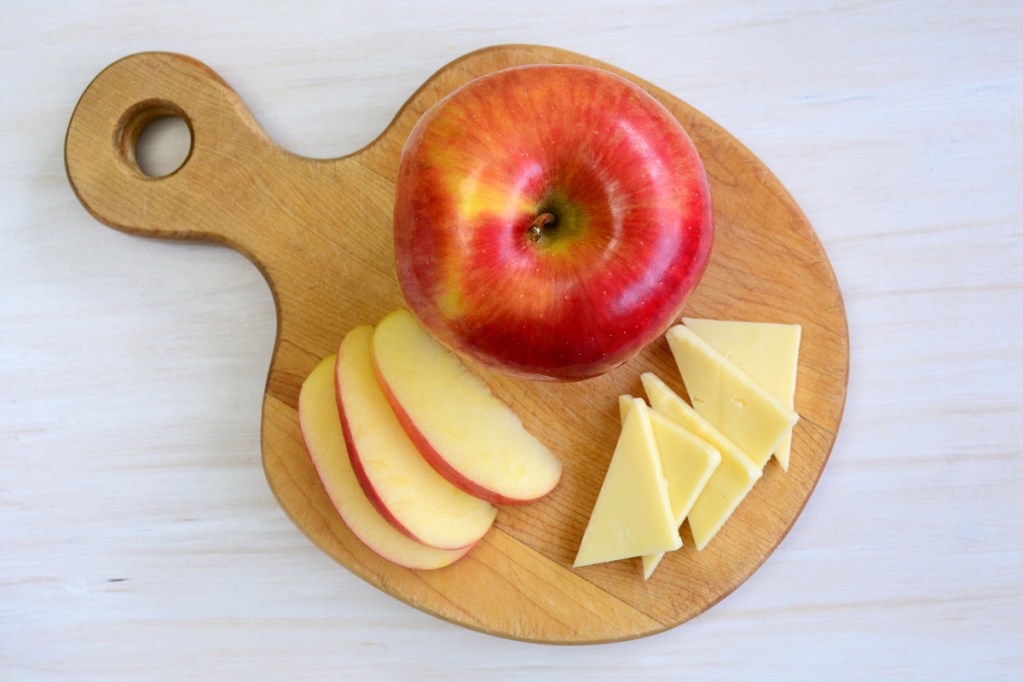
Apple
Good news, headache sufferers — a 2008 study revealed that those participants who chose an apple scent as appealing had shortened migraine episodes in addition to a significant reduction in headache symptoms. In similar studies, the scent of a green apple was found to possibly reduce anxiety.
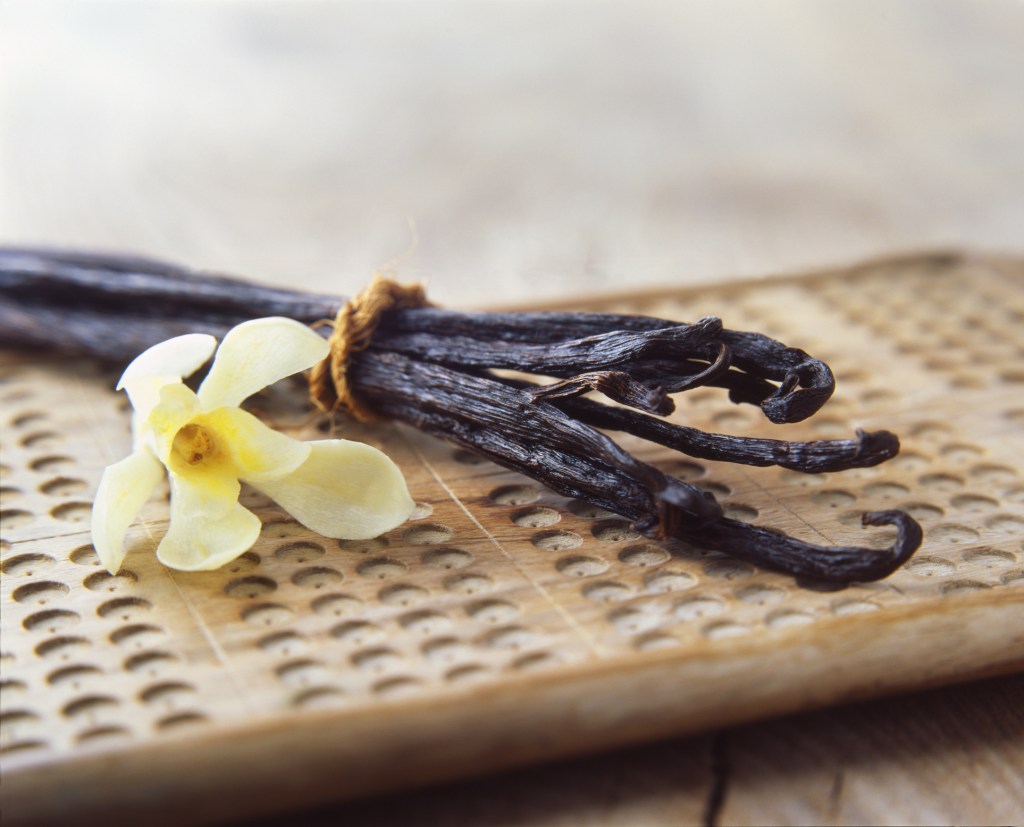
Vanilla
In one study by the journal Chemical Senses, vanilla was proven to lift the mood and boost relaxation. In subsequent studies by the same researchers, vanilla could elevate participants’ moods of joy through a mapping exercise. Additionally, vanilla has been used for centuries to help people awaken their sensual chakras and heal emotional conflicts.
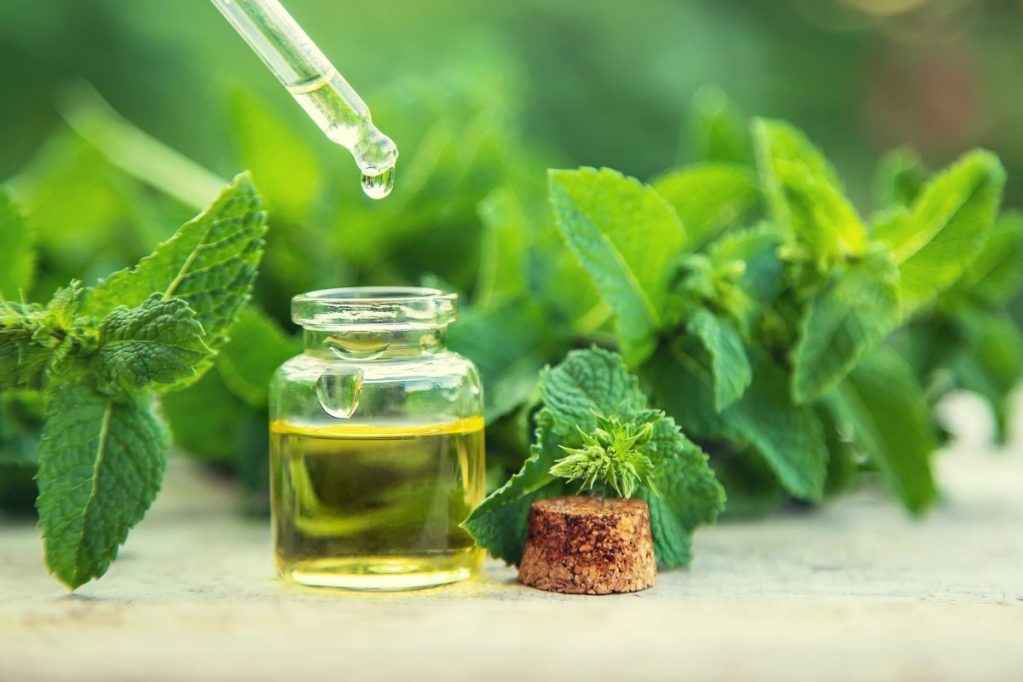
Peppermint
For anyone who has ever smelled it, there’s no doubt why peppermint is thought to promote alertness and boost energy. It also heightens concentration, brings on clarity of thought, and gives fresh breath to anyone who chews it. Additionally, it’s been connected to greater motivation and cognitive stamina, especially during test taking.
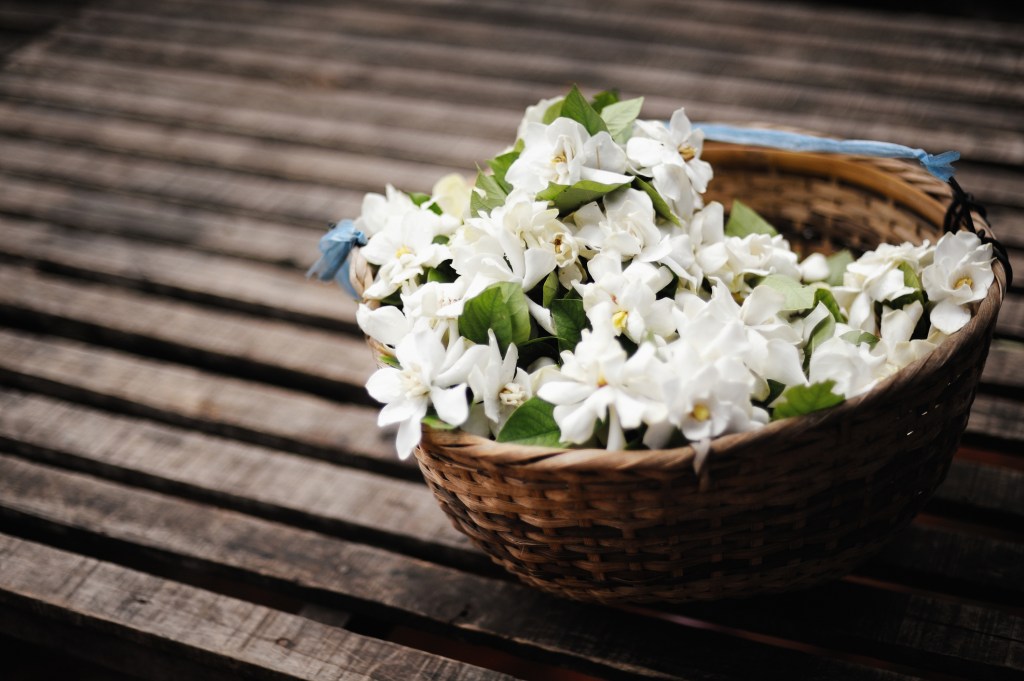
Jasmine
Considered a natural antidepressant, jasmine has been proven to drive up alertness while making depressed thoughts more manageable. It’s also believed to help with sleep, soothe frazzled nerves, and create a sense of optimism.
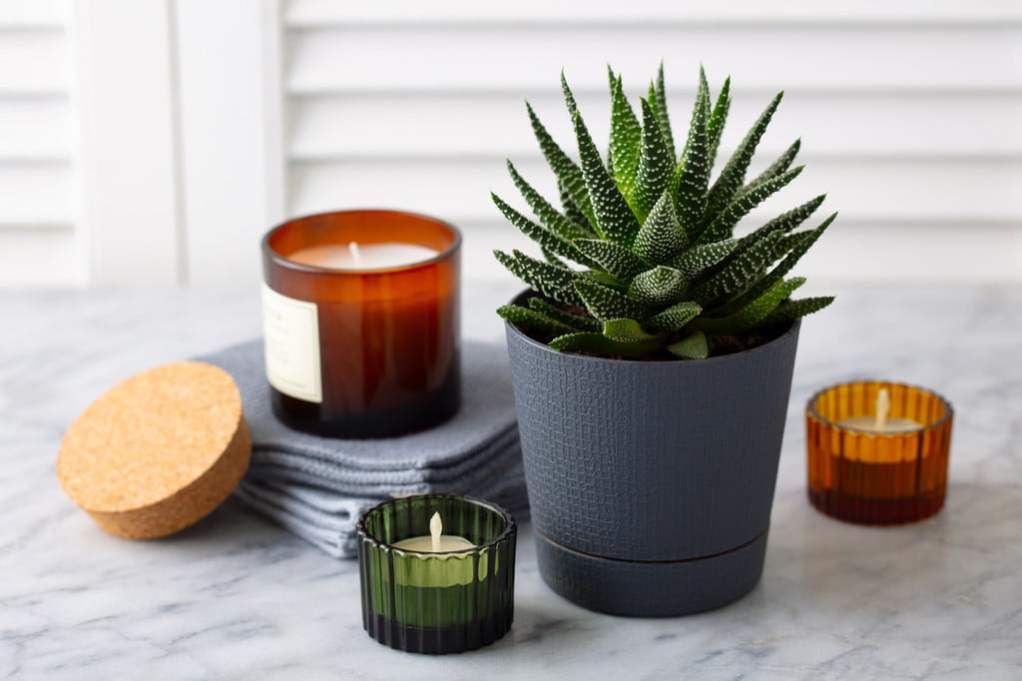
Thyme
Need some help memorizing facts before a test? Keep a little thyme nearby to inhale. Not only is it a known mental stimulant, but it also helps eliminate fatigue and anxiety, gives a boost in energy, and aids in concentration.
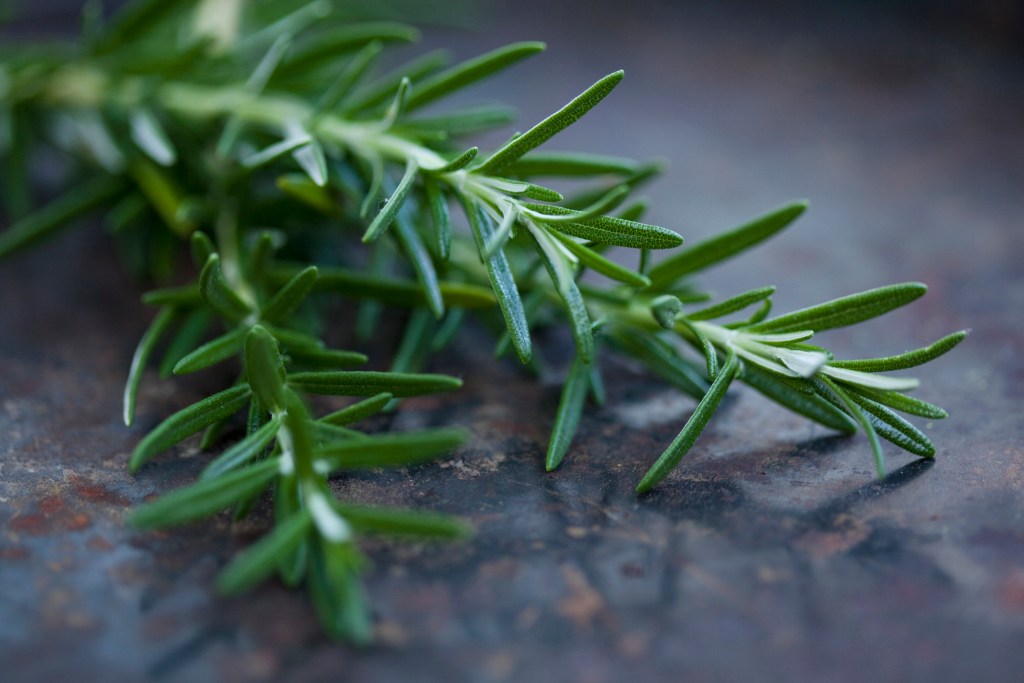
Rosemary
Keep a little rosemary on your bedside if you have trouble waking up. It’s a brain and memory booster, helps with focus, and has an uplifting effect on the mood. What’s more? Rosemary can help fight headaches, exhaustion, muscle aches, and stress by reducing cortisol levels.

Olive oil
We’ve long known the benefits of the Mediterranean diet and consuming olive oil, but now the news is this: We can improve our health just by smelling olive oil. A study from the German Research Center for Food Chemistry revealed that just having the smell of olive oil present at mealtime could help participants cut calories consumed — and their blood sugar levels responded positively, as well.
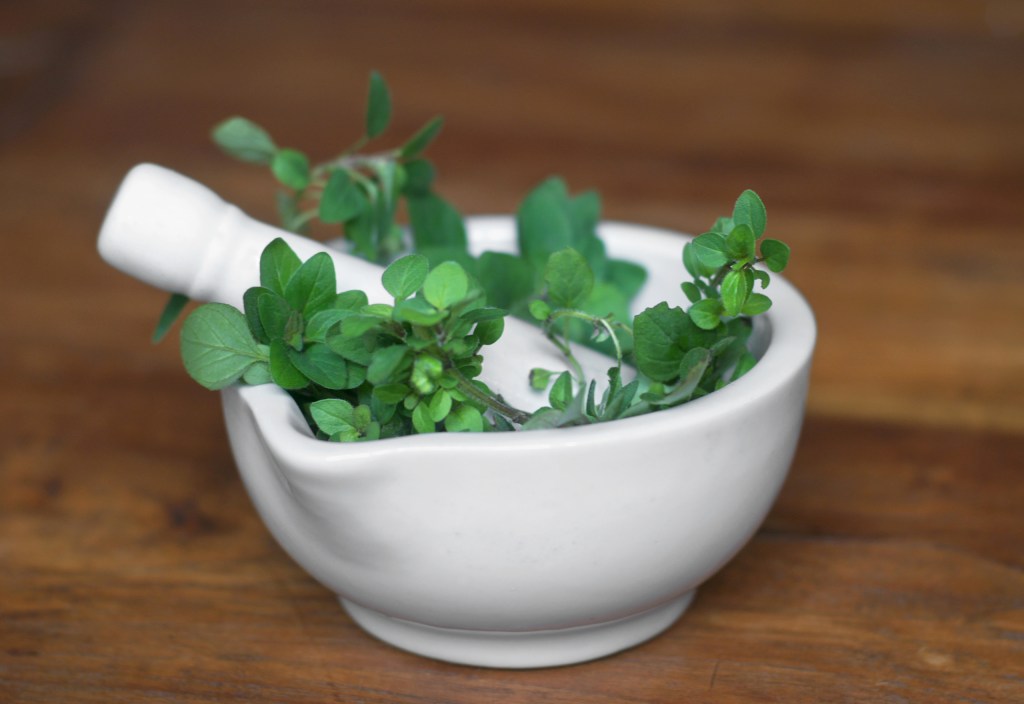
Marjoram
A serious stress reducer, marjoram can ease anxiety and wrap the mind in calmness when used as an essential oil. It’s also been helpful for those suffering from trauma in generating happiness during their time of sorrow and shock. Marjoram is best used in a diffuser, applied topically as a massage oil or compress, or by diluting it in bath water.
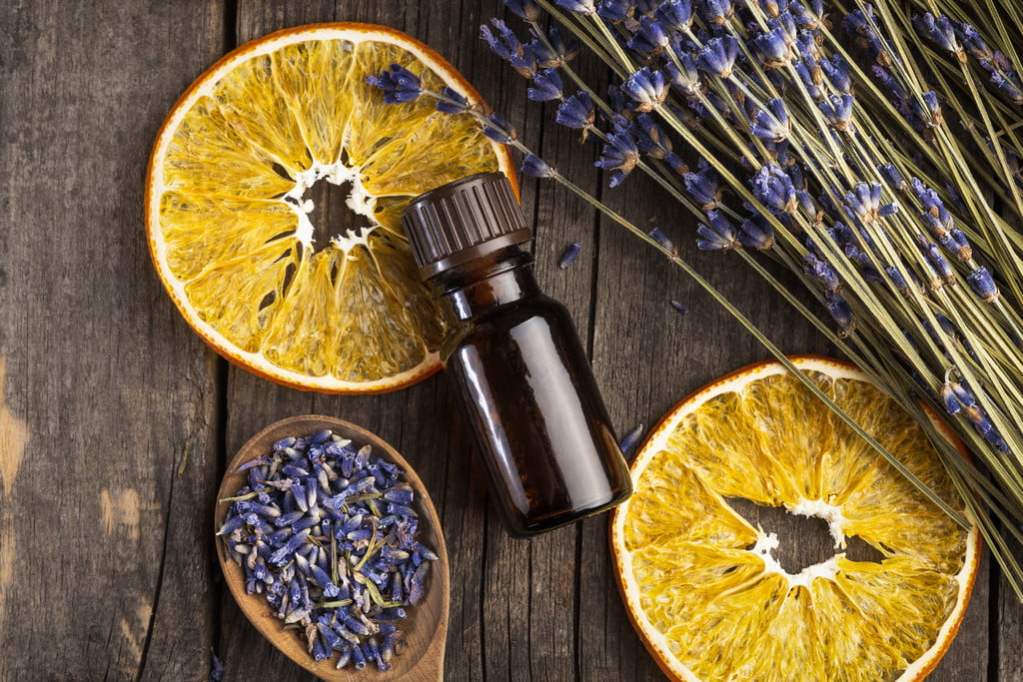
Bergamot
Another excellent stress reducer, bergamot is known to lower the blood pressure and heart rate, and reduce feelings of fatigue. It also decreases the amount of cortisol, or stress hormones, in the body. Overall, it improves the mood, energy, and efficiency of anyone who smells it.
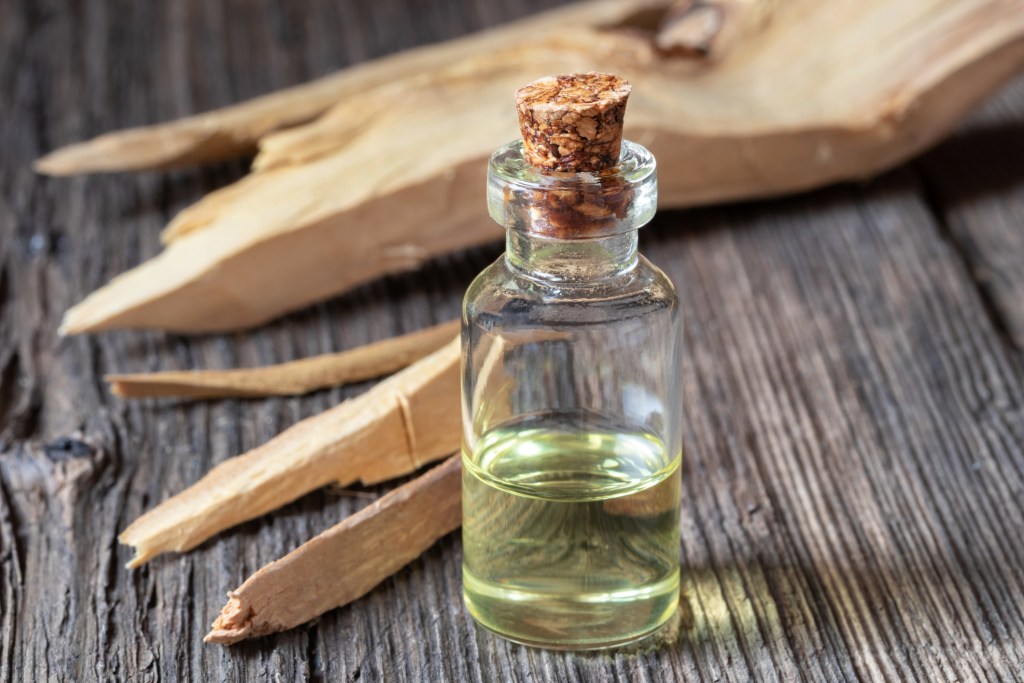
Sandalwood
A favorite scent of many, sandalwood is known to lift the mood, boost confidence, eliminate anxiety, protect the skin from cancer, help with the healing of wounds, and more. Used in Indian and Chinese medicine, it has many uses as a folk medication, as well.
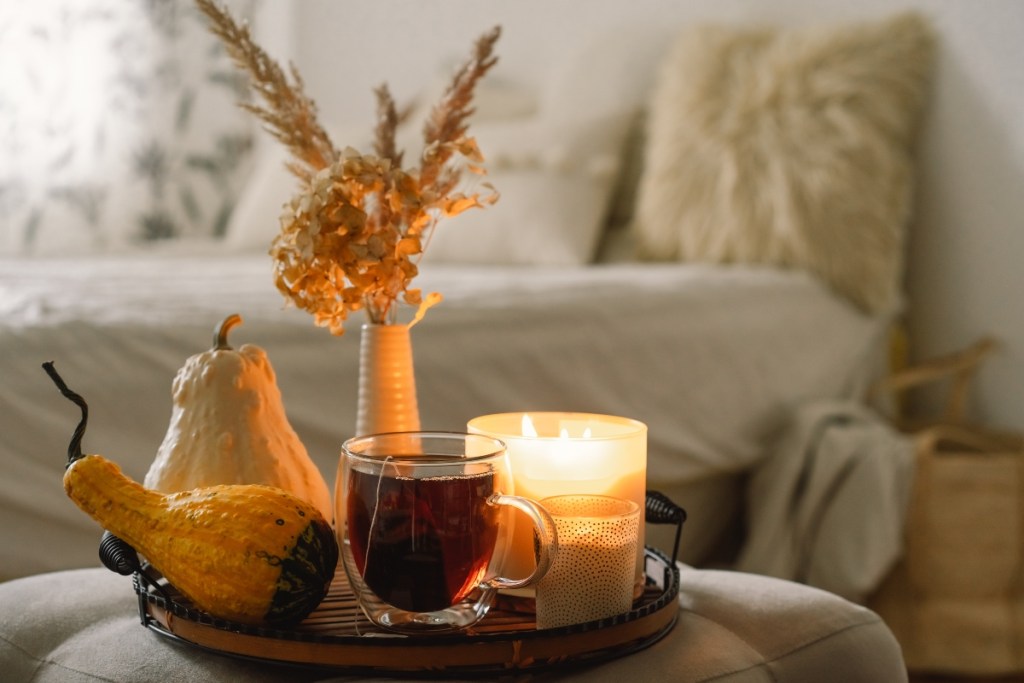
Patchouli
Patchouli is a rich, deep scent that gives off an earthy aroma with musky undertones. It is sharp, warm, and grounding. For some, the scent can be quite strong, so it is often used as a base and paired with lighter notes that give this scent more definition. Patchouli comes from the leaves of the patchouli plant and is turned into an oil to heighten its aromatic fervor.
According to Healthline, patchouli can help reduce anxiety and inflammation, offer pain relief, be utilized as an insecticide and repellent, and much more. Many homeowners enjoy using this scent in offices or spaces where more relaxation and peace are necessary. It is also a fantastic choice for outdoor patios or enclosed sunrooms for those who want a rewarding smell that also keeps insects at bay.
Place these scents on a bedside table or anywhere else in your home. However, be mindful of how you may feel, as many people can experience certain symptoms when exposed to strong smells. If this isn’t the case for you, then enjoy the fragrance as you dive into that book you’ve been wanting to make time to read and relax. You’re feeling happier now.
Editor’s Note: The above article is for informational purposes and not used as medical advice. Always consult a physician before using essential oils.


